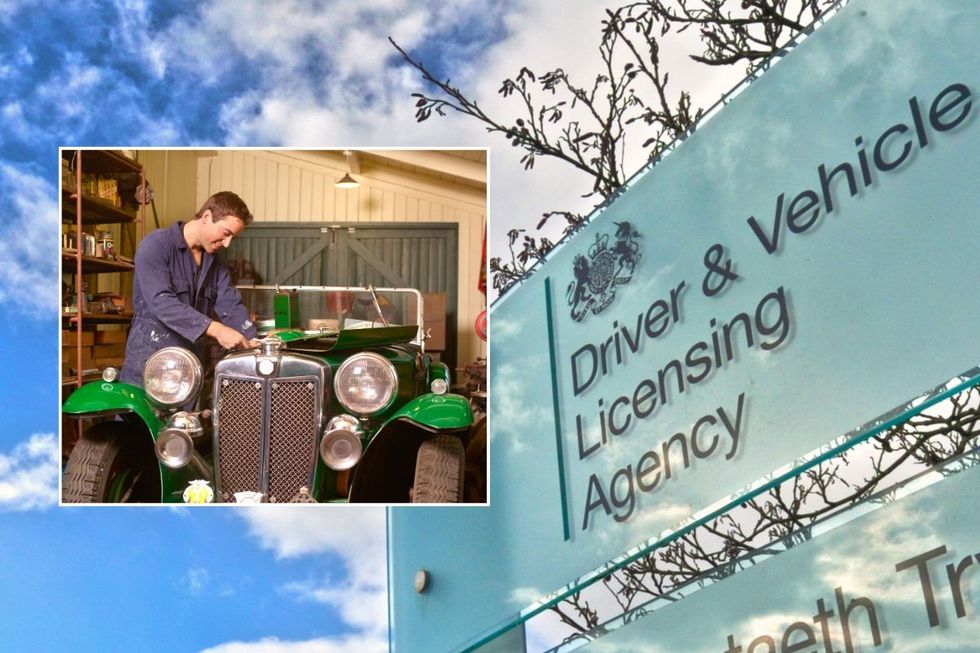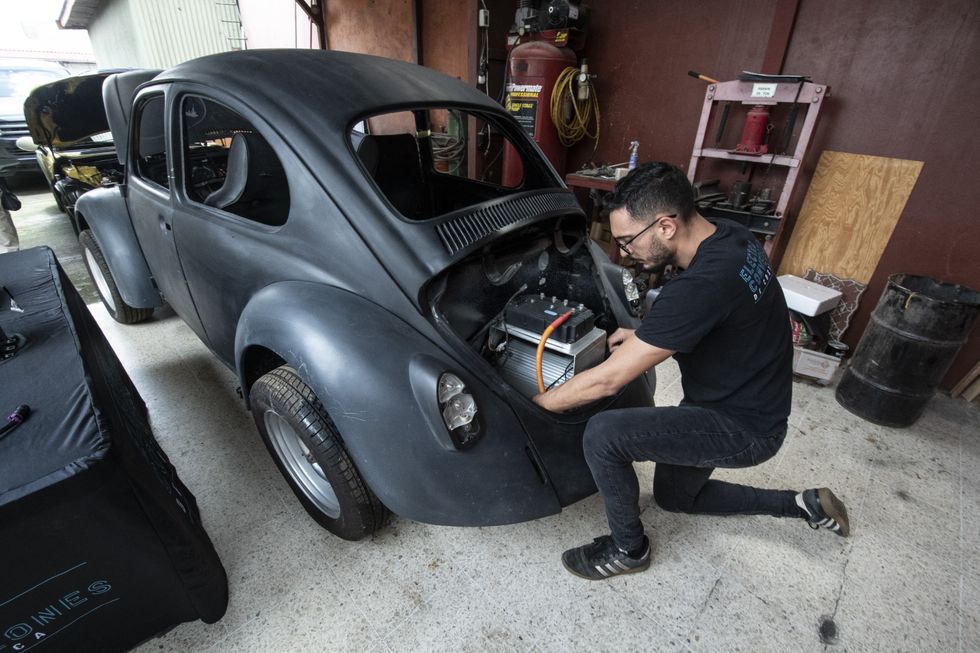DVLA law changes to remove 'headache' for thousands of drivers with new rules launching within days
PARLIAMENT TV
|WATCH: Greg Smith MP questions the DVLA's treatment of the classic car industry

Motorists will benefit from the new DVLA changes on August 26
Don't Miss
Most Read
Experts are praising new DVLA rules that could have a dramatic impact on the future of the classic car industry, which are set to be introduced in the coming days.
Earlier this week, the Driver and Vehicle Licensing Agency (DVLA) announced that it would be making several changes to vehicle registration regulations.
The changes aim to deal with modern restoration methods of historic vehicles, in addition to simplifying the registration process.
**ARE YOU READING THIS ON OUR APP? DOWNLOAD NOW FOR THE BEST GB NEWS EXPERIENCE**
One change means drivers will no longer need to notify the DVLA about like-for-like repairs and restorations, as long as the vehicle looks the same as when it was first manufactured.

GETTY/DVLA
|The DVLA will roll out the new policy regulations on Tuesday, August 26
Any vehicles that have received significant structural changes will also be able to keep their original Vehicle Identification Number (VIN) and registration number.
Crucially, the DVLA has recognised how many people are converting their vehicles from petrol or diesel to electric.
Any historic vehicle that has been converted to electric must be able to retain its original identity, although the registered keeper must notify the authority of the change.
Motoring barrister Richard Clegg welcomed the DVLA's new regulations, saying they would support the UK's historic vehicle community and businesses.
 CAR AND CLASSIC |
CAR AND CLASSIC | It is hoped that the new DVLA policy changes will remove red tape for classic car owners
He pointed to data from the Historic and Classic Vehicles Alliance (HCVA), which suggests that the industry is worth a staggering £4billion a year to the economy.
The expert pointed to the changes reducing the risk of vehicles being designated with the "dreaded Q plate", sparing drivers further difficulties.
A "Q plate" is issued by the DVLA when there are concerns around the vehicle's age or identity, which usually occurs when there have been heavy modifications.
Mr Clegg said: "If a vehicle is assigned a 'Q' registration number, any original vehicle registration number becomes invalid, which casts doubt on its provenance.
LATEST DEVELOPMENTS:
"The new policy is intended to be more accommodating of significant structural alterations to a vehicle and electric conversions when it comes to them keeping their original registration and not receiving a 'Q' plate."
The new policies will be formalised and rolled out on Tuesday, August 26, 2025, and follow a consultation which ran last year.
The call for evidence received more than 1,350 responses from classic car owners, motoring clubs and the wider historic vehicle sector.
It is hoped the new policies will support the classic car industry and modernise aspects to make it easier to own an older vehicle.
 GETTY | A number of businesses around the UK offer bespoke EV conversions for classic cars
GETTY | A number of businesses around the UK offer bespoke EV conversions for classic cars
Mr Clegg specifically pointed to the benefits drivers would be able to see once the new regulations are rolled out by the DVLA.
He said: "Major restorations and EV conversions ought soon to be less of a headache in terms of maintaining provenance for the owners of the 3.1 million classic and historic vehicles in the UK and those undertaking the work.
"It is intended that like-for-like repairs and restorations ought no longer to require notification provided that the vehicle's appearance is the same as when it was originally manufactured and that there are no changes to the log book (V5C)."
The expert noted that owners of classic cars which undergo changes would still need to notify the DVLA about the modifications.










